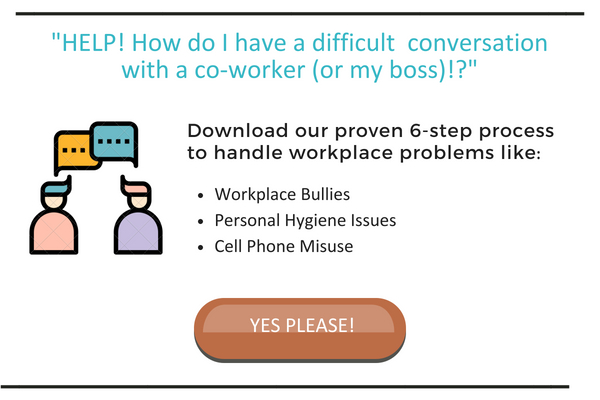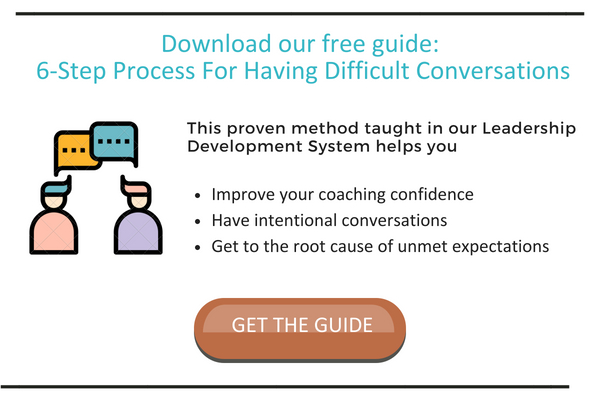
Leaders and employees appreciate the support of a coach. We’ve seen it over and over again. The individuals we coach (and I’ll bet also the ones YOU coach) are grateful to be introduced to ideas and tools they may have never even heard of; they appreciate having a sounding board. And, the benefits go beyond these few things.
Benefits of coaching:
Coaches can help employees…
- become clear about expectations.
- push their potential and plan for their future development.
- solve problems with employees and co-workers. Even bosses.
- challenge their limiting thoughts and insecurities.
- feel more important, engaged and motivated at work
Let’s take a look at a few things we are seeing in organizations that appear to be influencing the movement toward more intentional coaching cultures:
#1: Frustrating Annual Performance Reviews
Put yourself in your direct report’s shoes for a moment.
Have you ever had an uninspiring, confusing or just plain demotivating performance review? Maybe you’re caught off guard by something your leader has been saving in a file, all the while you think you’ve been doing a great job.
You walk away from the review feeling totally disappointed, with no clearly set goals or expectations about how you can improve in role, advance your career and raise your earning potential.
Fortunately, we are seeing a migration away from this concept. In fact, recently, I was at a conference attended by HR executives. One of the CHROs stood in front of hundreds of people and said,
My goal on this earth is to eradicate the annual performance review.
Employees are asking for continuous support; they’re asking for their leaders to revisit expectations and goals on a regular basis, and to provide their feedback on a regular basis, as well.

#2: Problem Employees and Work Bullies
We receive multiple calls every week for help with leaders and employees who are posing challenges to those around them, as well as to themselves. These calls are triggered by feelings of pain and frustration. Here are just a few examples:
- One salesperson is great with customers yet very disrespectful to the internal team she relies on to effectively meet the needs of customers. Customers think she is great. Other employees wonder why she is still there.
- A 30-year employee who was promoted recently into a key senior level role thinks he’s the smartest guy in the 300-employee operations area of the company, his area of responsibility. He thinks he’s brilliant, therefore does not have to ask the opinions of anyone else. The people who work for him are shocked he was promoted, given how horrible he is to others (their words). Already, three of his direct reports have given their notice.
- The owner of a 750-employee company reached out on his own behalf. He said, “I find myself getting impatient with others, more so than usual. I think I need help to get back on track.”
In each of these situations, along with dozens more just like it, the leaders within the organization are savvy enough to know these individuals can not just ‘do better.’ Most individuals who are not in a good place behaviorally can not just fix it on their own.
#3 The Need To Retain Talent And Reduce Turnover
High potential employees need to be developed more quickly and more intentionally if their employers want to hang on to them. These employees expect to be coached!
What is getting in the way of coaching?
With the above-stated needs and triggers for coaching, why are managers struggling internally to provide this critical service? Below are just a few of the reasons we see:
- Managers do not have time. Or perhaps it’s that they don’t schedule the time! Some managers will engage in coaching but only inconsistently.
- Managers have their own deliverables to tend to. Coaching, which is a proactive, intentional activity, is often trumped by the more urgent, firefighting, deadline-driven activities.
- Managers do not know how to coach! Without the confidence for the process, it’s easier to avoid it than to engage in it.
Where do you go from here?
Decide. Decide about the importance of coaching. If you don’t have the resources to equip your managers to provide coaching, a professional coaching and training provider can offer a neutral, unbiased person they can work with. This can be immensely helpful with difficult, challenging employees. This feels safe. We’ve been told this.
Take Action, Here’s HOW. We would like to share one of our most effective coaching secrets with you. Here’s our proven six-step process for having a difficult employee conversation that we teach all of our leaders from C-suite leaders, all the way to front-line supervisors.
